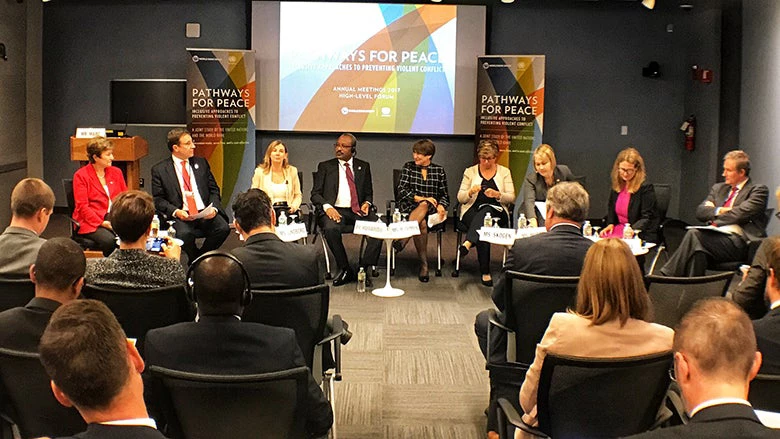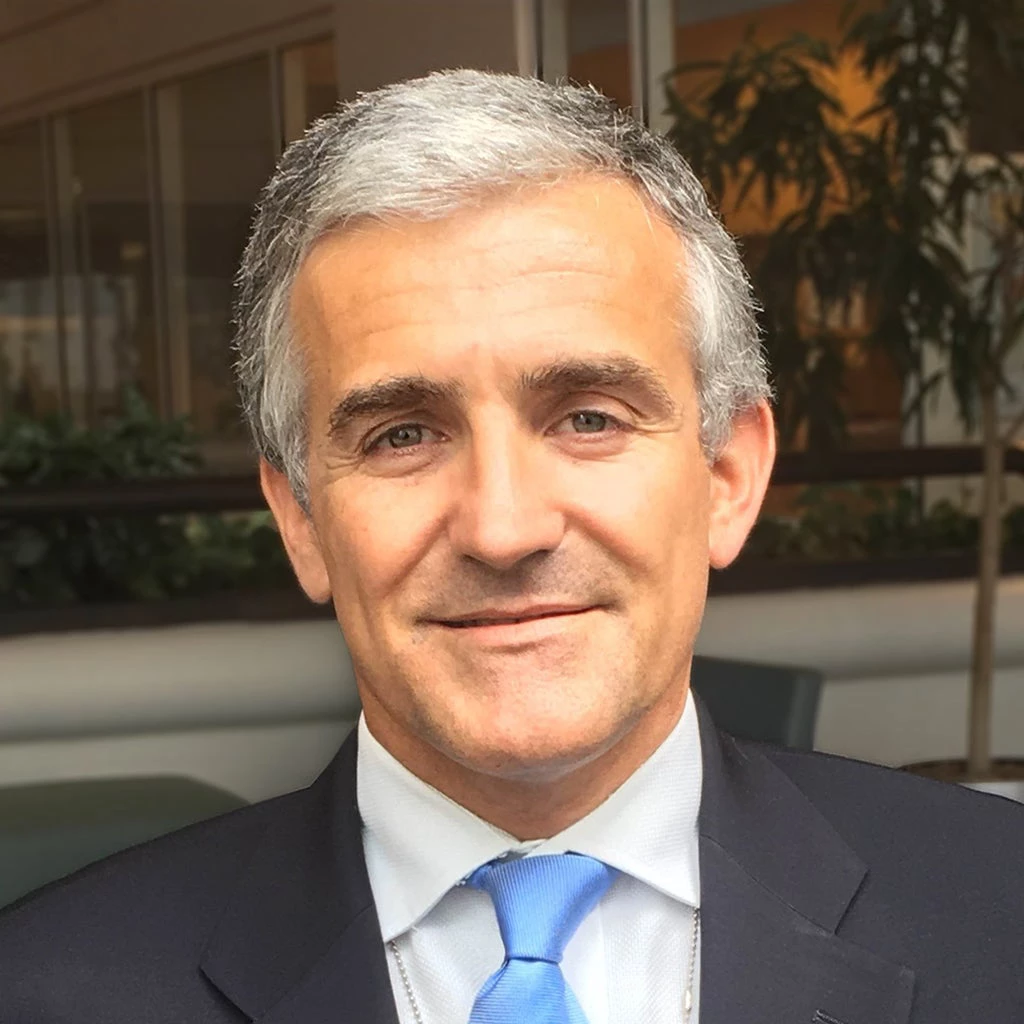The World Bank Group-IMF Annual Meetings, which concluded this week, saw over 13,000 participants from 180 countries, including 171 ministers. It’s a good opportunity to take stock of where we are in global development today and renew our commiment. The overall picture is positive – global growth has improved over the past year and encouraging progress has been made in poverty reduction – but the world also faces many complex, interlinked challenges.
The Communique issued by the Development Committee reminded us of the multiple risks that we face. “Recent human losses and economic shocks caused by natural disasters, famine, conflict, and displacement demonstrate that hard-earned economic and social gains can easily be lost,” it warned, underscoring the importance of addressing these issues to achieve sustainable and inclusive growth.
With a renewed sense of urgency, my colleagues and I engaged in discussions with governments and development partners during the Annual Meetings to strengthen support for both low- and middle income countries that are struggling to manage fragility risks. We know that fragility is not a problem that exists in isolated corners of the world, and we need to respond in a much more comprehensive manner through stronger partnerships.
The diversity of fragile situations was highlighted at a high-level discussion on “Maximizing the World Bank Group’s Impact in Fragile and Conflict-affected Situations.” We gained important insights from the panel – featuring ministers from the Central African Republic (CAR), Colombia, Ukraine, and Afghanistan – each telling us of their experience and underscoring the need for tailored solutions. I was encouraged to hear that Recovery and Peacebuilding Assessments, jointly conducted by the Bank, United Nations and the European Union, had helped manage transitions in countries including CAR and Ukraine.
Forced displacement remained a high priority. At a meeting to assess progress made by the Global Concessional Financing Facility (GCFF), which helps middle-income countries such as Lebanon and Jordan manage the refugee crisis, Denmark, Canada and Norway pledged significant new support amounting to $80 million. Leaders of multilateral organizations and countries supporting and benefiting from the GCFF agreed that it had provided critical assistance to Syrian refugees and their host communities, but that continued support is urgently needed.
In addition to forced displacement, economic migration has emerged as another distinct challenge. In response, seven Multi-lateral Development Banks (MDBs) launched a new coordination platform on economic migration and forced displacement in a meeting with G7 officials, to advance strategic priorities including improving data and evidence and strengthening technical assistance. Representatives of MDBs committed to enhance collaboration, utilizing their longstanding experience in sectoral work and poverty reduction.
With major conflicts tripling since 2010, the international community is now emphasizing the need to do more to prevent violent conflict. This was another focus for us at the Annual Meetings; over the past year, the Bank and the United Nations have worked on a joint study “Pathways for Peace – Inclusive Approaches to Preventing Violent Conflict” to better understand how development can contribute to prevention more effectively. We convened a high-level forum hosted by World Bank CEO Kristalina Georgieva and Achim Steiner, UNDP Administrator, moderated by Nancy Lindborg, President, United States Institute of Peace. Hassoumi Massaoudou, Minister of Finance, Niger, shared the successful experience of his country, in a discussion with representatives of Norway, Sweden, the Netherlands, France and Germany on how the international community can support country efforts. These discussions will inform the final report, to be published in early 2018, and help to emphasize prevention in preparing projects and programs going forward.
We should not underestimate the scale of the challenge that countries face today in realizing their aspirations, but the tremendous energy that infuses the Annual Meetings drives us to do more and do better, renewing our commitment to work together towards our goals to end poverty and boost shared prosperity. This year, on July 1, we began to implement our commitments under the 18th replenishment of the International Development Association – the Bank’s fund for the poorest – which doubled resources for low-income countries affected by fragility, conflict and violence to more than $14 billion. This will be an important focus of our work in the weeks and months ahead.



Join the Conversation